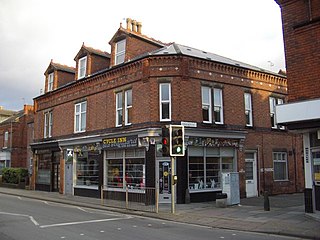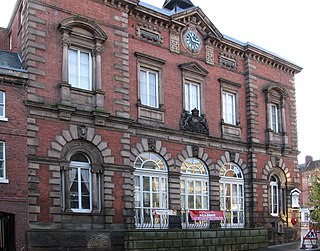
Arthur Shrewsbury was an English cricketer and rugby football administrator. He was widely rated as competing with W. G. Grace for the accolade of best batsman of the 1880s; Grace himself, when asked whom he would most like in his side, replied simply, "Give me Arthur". An opening batsman, Shrewsbury played his cricket for Nottinghamshire County Cricket Club and played 23 Test matches for England, captaining them in 7 games, with a record of won 5, lost 2. He was the last professional to be England captain until Len Hutton was chosen in 1952. He was a Wisden Cricketer of the Year in 1890. He also organised the first British Isles rugby tour to Australasia in 1888.

Julius Caesar was an English cricketer who played in 194 first-class matches between 1849 and 1867.

Derek William Randall is an English former cricketer, who played first-class cricket for Nottinghamshire, and Tests and ODIs for England in the late 1970s and early 1980s.
Cyril John Poole was an English cricketer, who played for Nottinghamshire and in three Tests for England. He also played football for Mansfield Town, Gillingham and Wolverhampton Wanderers.

His Honour Tinsley Lindley, OBE was an English footballer. He was described as "an ideal centre forward". He scored three goals in his debut aged 16 for Nottingham Forest. He was an amateur who did not wear football boots but scored 14 goals for England in 13 internationals Lindley was appointed an OBE in January 1918 for his work during World War I and in 1935 he was also awarded the King George V Silver Jubilee Medal. On retirement from football, Lindley turned his attention to his law practice, having been called to the Bar in 1899 while still playing.

John "Foghorn" Jackson was a Nottinghamshire and All-England Eleven cricketer who was generally reckoned to be the outstanding fast bowler of the 1850s.
William Walter Keeton was an English cricketer who played in two Tests in 1934 and 1939. He was a Wisden Cricketer of the Year in 1940 and played first-class cricket as a right-handed opening batsman between 1926 and 1952 for Nottinghamshire. Keeton scored a century against every other first-class county and his 312 not out made in just under eight hours against Middlesex at the Oval in 1939 is still a record for the Nottinghamshire team.
Reginald Thomas Simpson was an English cricketer, who played in 27 Test matches from 1948 to 1955.

Francis Thomas "Frank" Gregory was an Australian explorer and politician.
In English cricket, the years 1826–1845 were dominated by the roundarm bowling issue, which was resolved when the style was legalised in 1835, and by the formation of the first modern county clubs between 1839 and 1845.
1867 was the 81st season of cricket in England since the foundation of Marylebone Cricket Club (MCC). Yorkshire achieved a perfect season in first-class cricket, something not likely to be equaled on covered pitches due to the high frequency of drawn matches, and even beforehand much more difficult due to the increased scoring after 1870, produced by the usage of a heavy roller and the disappearance of the abundant shooters, which previously made batting very tough. The season is, however, best known for a schism between the northern and southern professionals that led to the North v South game, one of the major "representative" fixtures of the time, being suspended for several years because northern professionals refused to play in London for want of better conditions.
1883 was the 97th season of cricket in England since the foundation of Marylebone Cricket Club (MCC). There was the first of four successive titles won by Notts, and the beginning of the "Great Revival" of Surrey, who had been among the weaker counties since 1866.
Robert Crispin Tinley was an English first-class cricketer in the mid-19th century who was recognised as one of the best slow bowlers of his time.
Harry Butler Daft was an English footballer who played for Notts County, with whom he won the FA Cup in 1894, as well as making five appearances as a left winger for the national side. He was also an accomplished first-class cricketer, playing 200 matches for Nottinghamshire between 1885 and 1899.

LLP

All Saints' Church, Winthorpe is a Grade II listed parish church in the Church of England in Winthorpe, Nottinghamshire, England. The current building, the construction of which was completed in 1888, is at least the third version of the church, which dates back to at least the early 13th century. All Saints' Church was commissioned by the church rector, Edward Handley, in memory of one of his relatives.
Venerable Augustus Otway Fitzgerald was Archdeacon of Wells from 1863 until his death.

Walter Owen Hickson was an architect and surveyor based in Nottingham.

Isaac Charles Gilbert was an English architect based in Nottingham.
This page is based on this
Wikipedia article Text is available under the
CC BY-SA 4.0 license; additional terms may apply.
Images, videos and audio are available under their respective licenses.









